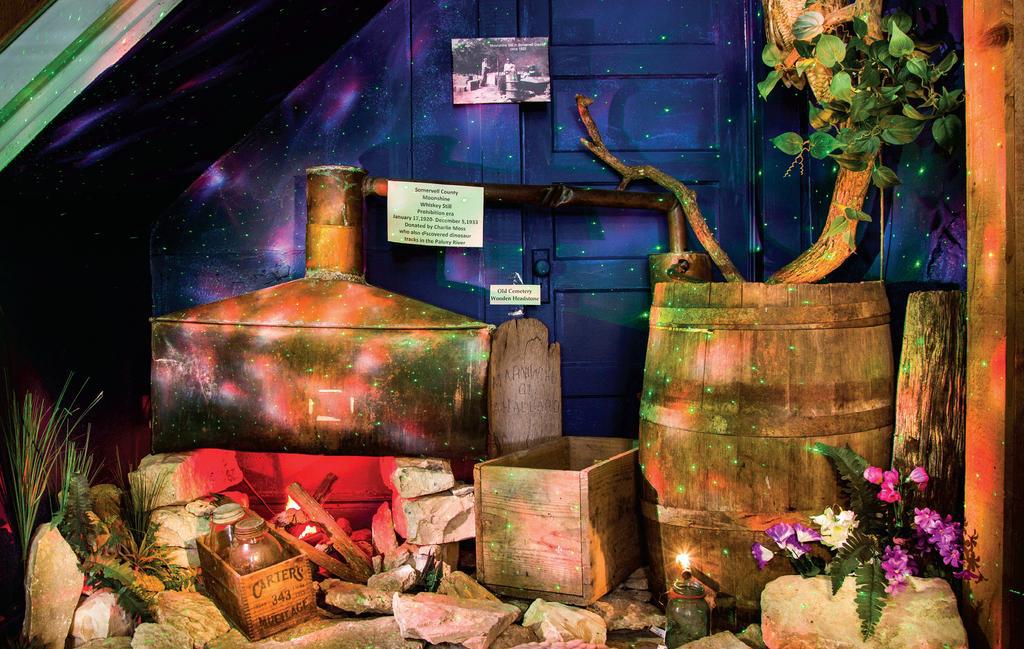
Red flames flicker under a century-old still at the Somervell County Historical Society Museum in Glen Rose. Though the cookfire is a wood-and-paper replica and the vintage copper tank hasn’t been used to make liquor for at least 60 years, the exhibit recalls the Prohibition era, when outlaw distilleries bubbled with moonshine among Glen Rose’s cedar breaks and limestone creeks.
The still belonged to the late Charlie Moss, a moonshiner who donated his old equipment to the museum in 1965. Charlie grew up farming maize, corn, oats, and hay. When the federal government enacted Prohibition in 1919, 25-year-old Charlie was one of many farmers who seized on continued demand for alcohol by making whiskey.
“Everybody thinks making whiskey was a glorious job, but it was hard work,” says Charlie’s son, James Moss. “They always cooked at night.”
James, now 75, recalls his father working under cover of darkness and hauling heavy bags of sugar and fruit jars




